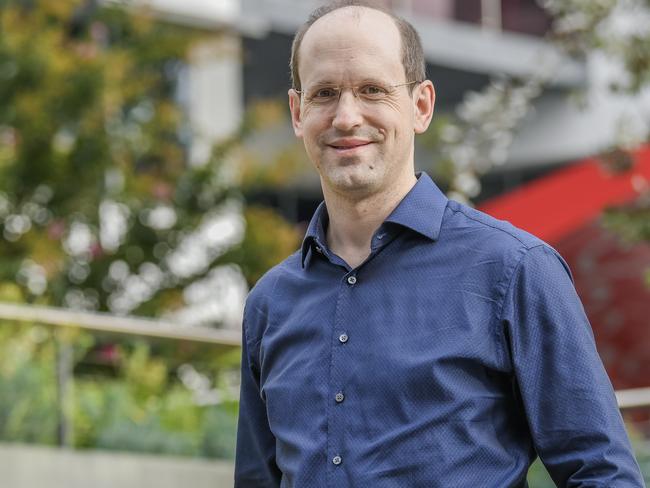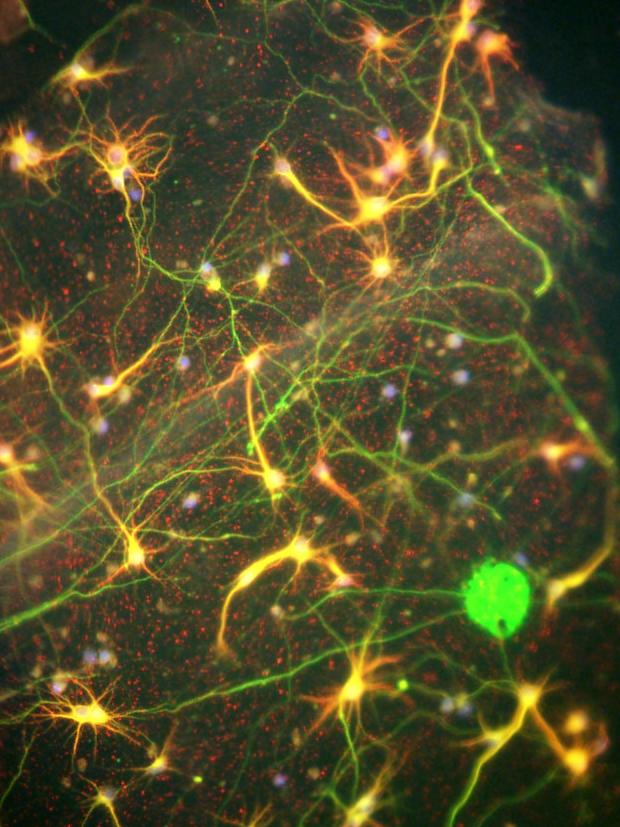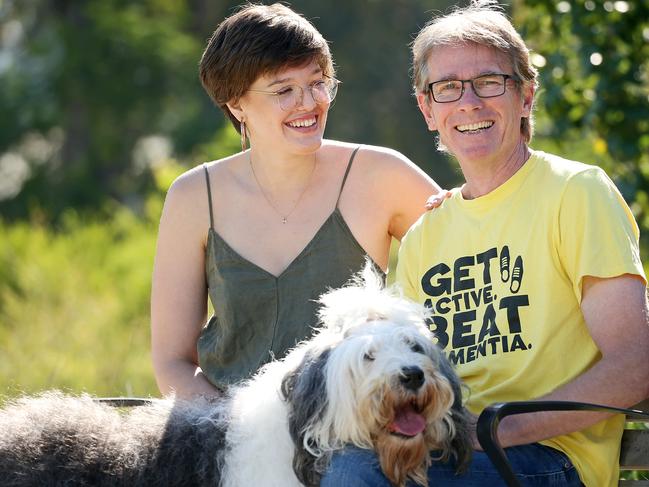Macquarie University scientists growing brains for dementia cure
It reads more science fiction than medical research but brains being grown in a dish by a group of Macquarie University scientists could help find a cure for dementia.
NSW
Don't miss out on the headlines from NSW. Followed categories will be added to My News.
Scientists are growing a brain in a dish to help find a cure for dementia.
At Macquarie University’s new Dementia Research Centre, tissue is grown on a 3D matrix to copy the brain of an Alzheimer’s sufferer.
And it’s on this “brain” that new therapies, including a vaccine, are being trialled to hopefully cure the disease that is the second-biggest killer in the country.
Lead researcher Professor Lars Ittner and his team of 40 can introduce the symptoms of dementia that cause the devastating deterioration.
“The tissue isn’t in a living organism but it is just as complex,” he said.
The secrets of Alzheimer’s disease have remained stubbornly locked.
For more than a decade, scientists have been focused on developing drugs to block the amyloid beta proteins that cause the “brain plaque” build-up that occurs in sufferers.
But, despite the millions spent, all trials have failed.
“It turns out to be not important, amyloid beta initiates disease but as the disease progresses it seems to be not relevant anymore,” Prof Ittner said.

SURGEON CONFRONTED WITH HEARTBREAKING IRONY
HOSPITALS WITH WORST EMERGENCY WAITING TIMES
“Once the disease has been diagnosed, the train has already left, so to speak.”
Now the team is following a new line to develop antibodies for an eventual vaccine to stop the disease in its tracks, as well as developing potential gene therapies to reverse the disease.
“We are considering things like antibodies for vaccination,” he said.
“The simplest explanation is the body synthesises an antibody against the disease.”
Unlike vaccines for bacterial or viral diseases, where an inactivated version is given to prompt the body to form antibodies, a vaccine for Alzheimer’s will target the proteins in the brain that change and sustain and promote the disease progression, Prof Ittner said.
He believes the centre has already made a significant breakthrough.
“We learnt amyloid beta initiates the disease process, then a very complex process leads to the dysfunction of the neurons,” he said.
“Our group has identified the other famous protein, the tau protein that forms the ‘tangles’ in the brain — imagine a tangle in your hair and if that happens inside a neuron you can imagine that is not so good for a brain cell.
“We have shown these tangles are downstream of the amyloid beta but if you remove them with different tricks, genetically or with antibodies, you can improve the outcomes.”
Prof Ittner now believes these effective therapies are now within his team’s grasp.
“You cannot reverse lost neurons, what is lost is lost,” he said.


“But there are two components of the disease — (there is) the loss of brain cells but the largest component is the dysfunction, brain cells that are not dead but they don’t work properly anymore.
“Those have a capacity to recover. There is hope to recover some of the lost function despite it being a degenerative disease.”
Dementia Australia estimates there are more than 447,000 people living with dementia, a number projected to more than double in the next few decades.
Timothy Granger can no longer work or drive, cook or even use the barbecue.
“In case I blow my head off,” the 54-year-old joked.
Keeping a sense of humour has been essential since the former business owner was diagnosed with early onset Alzheimer’s disease.

“I had to give up my work, but I had no idea what was going on, I was the cook in the house and my wife noticed I was doing things differently,” he said.
“He did silly thing, he was absent-minded and put the cornflour in with the cups, or leave the car door open,” Laura Granger, Tim’s wife of 30 years said.
The impact has changed the whole family.
“Tim had to close his business, and we had to sell our home because we could not afford the mortgage,” Mrs Granger, a dancer teacher and mother of two, said.
Prudence, 26, has moved back home to help her parents.
“Dad was an amazing chef, he was responsible for all the cooking and now it comes down to me and mum and we’re not very good at it,” she said.
The family is holding out for a cure.
“It is about time, it’s time to get this fixed,” Mr Granger said.
‘It’s just beyond reach but we have hope,” Mrs Granger said.
Originally published as Macquarie University scientists growing brains for dementia cure


